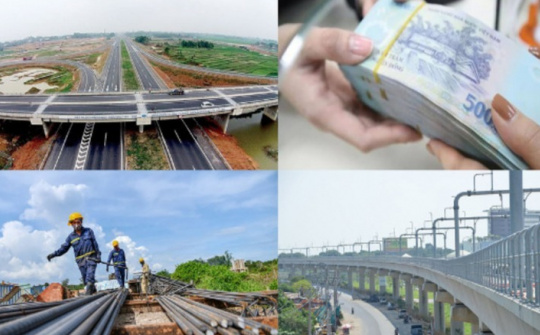Hanoi leads the country in innovation index
According to the local innovation index ranking in 2023, Hanoi led the country with 62.86 points, followed by Ho Chi Minh City (55.85 points), Hai Phong (52.32 points) and Da Nang (50.7 points). Hanoi now has 168 out of a total of about 800 science and technology enterprises nationwide, accounting for 21%. The city currently has more than 1,000 innovative startups, accounting for more than 26% and nearly 300 hi-tech agricultural production models.
To achieve such an impressive ranking, the city has implemented synchronous solutions with priority given to the completion of the legal framework, mechanisms, and policies on science, technology and innovation and the focus on building breakthrough and specific mechanisms to make science, technology and innovation truly become the driving force for Hanoi’s socio-economic development, said Standing Deputy Chairman of the municipal People’s Committee Le Hong Son.
 |
| Vietnam National Innovation Center in Hoa Lac Hi-tech Park, Thach That district, Hanoi. |
In particular, the Law on the Capital (amended) recently passed by the National Assembly will contribute to removing bottlenecks and obstacles in the development of science, technology and innovation in the capital. The amended Capital Law has also added special incentive mechanisms and policies to support Hanoi in developing hi-tech zones, innovation centers and advanced technology business models. This will create an important premise for Hanoi to become the innovation center of the country and the region.
The amended Capital Law also has regulations on supporting technology application and transfer activities, helping enterprises invest in research and development as well as commercialization of scientific research results; allowing universities, research institutes, and public science and technology organizations to establish enterprises.
Another important new point of the amended Capital Law (amended) is the controlled testing mechanism in a number of fields, especially with new technologies. This will help Hanoi quickly access technological advances, while creating motivation for innovative startups. “Hanoi pledges to continue to accompany businesses, organizations and scientists, creating the most favorable conditions for the development of science and technology and innovation,” affirmed Son.
Each university is an innovation center
Nguyen Truong Phi, Head of the Innovation Office, Department of Technology Development and Innovation, Ministry of Science and Technology, said that although the current demand for innovation is very large, Vietnamese enterprises still face many difficulties such as lack of capital, lack of high-quality human resources, lack of information about new technologies, and difficulties in accessing the market. Meanwhile, enterprises are divided into different groups based on development goals, including large enterprises, small and medium enterprises, science and technology enterprises, and innovation startups. To meet the needs of different groups, it is necessary to introduce separate and appropriate policy packages, so that these groups can benefit when the policy is issued.
“Hanoi also needs to establish a venture investment association to attract foreign capital for enterprises; have preferential mechanisms for venture investment enterprises; enhancing cooperation between research institutes, universities and enterprises to solve large-scale problems,” Phi said.
Son suggested that the city’s departments, branches and sectors should accelerate the connection of the online platform on the Hanoi innovation startup ecosystem with the national innovation startup ecosystem. In addition, Hanoi needs to build and effectively operate the Innovation and Startup Center. This is a place to gather, lead and connect entities in the innovation startup ecosystem of Hanoi and neighboring localities, providing services to support innovation startups.
On the other hand, Hanoi needs to promote communication work, promote the start-up spirit in society; attract the attention, participation and investment of society for innovation startups; and build start-up culture, especially among young people, students, and pupils, to increase innovation index.
Experts suggest that the State needs to have an orientation on startup associated with innovation through specific support policies for the education and science and technology sectors, and consider each university as an innovation center. Innovative activities of universities also need specific orientation and key investment, promoting the diversity and specific advantages of each university./.





